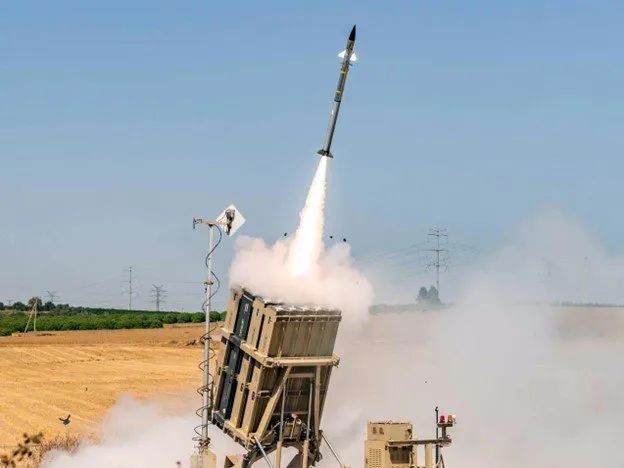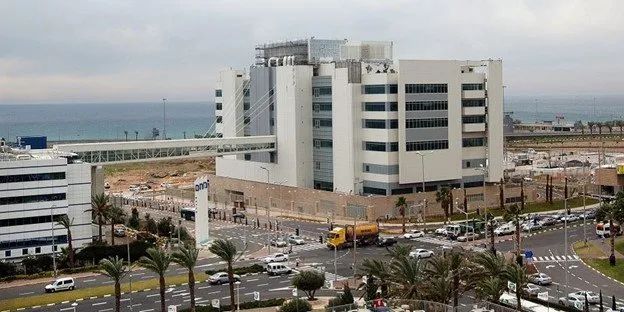There are currently 500 multinational companies operating in Israel, primarily as R&D centers after acquiring Israeli startups, from Intel to IBM, Apple, Sony, Microsoft, Google and Facebook.
On October 7, local time, a new round of military conflict broke out between Israel and Palestine. The two sides continued to exchange fire and the situation continued to escalate. This round of conflict between Israel and Pakistan happened suddenly, with unprecedented scale and intensity, and is now likely to become more intense.
War is first of all a human tragedy, but it can also cause economic losses and industrial damage. In the global technology industry, Israel stands out as a small but influential player, especially in semiconductor technology. It is one of the few countries outside East Asia that produces advanced chips, is a major source of chip engineering talent, is fertile ground for semiconductor start-ups and is a hub for international chipmakers.
There are currently 500 multinational companies operating in Israel, primarily as R&D centers after acquiring Israeli startups, from Intel to IBM, Apple, Sony, Microsoft, Google and Facebook.
Metrans is verified distributor by manufacture and have more than 30000 kinds of electronic components in stock, we guarantee that we are sale only New and Original!
In 2015, Israel spent 4.3% of its gross domestic product (GDP) on civilian research and development, the highest ratio in the world. Israel is also home to many electronics and semiconductor companies and facilities.
As Israel is currently suffering from terrorist attacks by Hamas and has declared a state of war, many workers and even top managers are currently serving as reservists in the Israel Defense Forces (IDF).
Israel has said it will call up an unprecedented 300,000 reservists, many of whom are likely to come from U.S. technology companies. The transfer of reservists from technology companies, including Intel, would impact their normal operations and production.
Israel Has Advanced Semiconductor Factories
Tower Semiconductor (formerly National Semiconductor) operates two factories in the northern city of Migdal HaEmek and expects to produce more than 50,000 wafers per month. The company, which provides analog and mixed-signal semiconductors to customers primarily in the automotive and consumer industries, said it is currently operating normally.
Intel is said to have become Israel's largest private employer and exporter and a leader in the local electronics and information industry. It has three development centers in Haifa, Petah Tikva and Jerusalem.
The most critical thing is that Intel has factories in the southern city of Kiryat Gat: the Fab 28 factory that produces 7nm process chips, and the Fab 38 factory currently under construction, scheduled to open in 2024, using 5nm process and EUV lithography technology. Kiryat Gat is just 12 miles from the Gaza border.
Earlier this year, Israeli Prime Minister Benjamin Netanyahu announced that Intel would invest $25 billion in another factory, scheduled to open in 2027. He called it the country's largest-ever international investment that would employ thousands of people and would expand its chip factory. and the design center there.
"We are committed to expanding manufacturing capabilities in Israel as we work to meet future manufacturing needs... We appreciate the Israeli government's continued support," Intel said in a statement.
Due to the relative proximity of the factories to conflict zones, there are concerns about the safety of these facilities and their employees. Like other companies, Intel is monitoring the situation closely and taking steps to ensure the safety and support of its employees.
"We are closely monitoring the situation in Israel and taking steps to protect and support our workers," an Intel spokesperson said.
Gaza Blockade is Disrupting Company Operations
Thousands of Palestinians cross the border between Gaza and Israel every day to go to work. They provide essential services to every industry, including transportation, logistics, manufacturing, food, cleaning and healthcare. Many of them are highly skilled workers.
The IDF blockade of Gaza effectively closes all crossing points, preventing these workers from traveling to their workplaces. This leaves most industries short of the personnel they need to operate.

Israel has not yet imposed a blockade on its border with the West Bank, which is also home to Palestinians and Israeli settlers. However, border controls will be tighter and many Palestinians will not be able to cross the border as usual.
Exports Affected
Transport disruptions, including flight cancellations and sea lane blockades, are also having a profound impact on supply chains. Many airlines have suspended flights to and from Israel, stranding passengers and affecting cargo shipments. Maritime operations face additional controls from the Israeli navy, making it increasingly difficult to move goods in and out of the country.
Thousands of travelers are stranded at Tel Aviv's Ben Gurion Airport, and many Israelis are unable to return home from many different countries.
UPS and FedEx have both joined the ranks of airlines drastically reducing international flights to Israel. UPS said it had stopped flights to Israel.
Shipping was damaged. As the Israeli navy imposes additional controls, it is becoming increasingly difficult for goods to enter and exit the country.
In addition, the United States also dispatched the USS Gerald R. Ford aircraft carrier strike group, which includes the largest and most advanced aircraft carrier in the world. According to Naval Technology Corporation, the ship can carry up to 90 aircraft, including F-35 fighter jets.
Overall, the conflict between Israel and Hamas has created significant challenges and uncertainty for the electronics supply chain, affecting multinational companies, production facilities, and the movement of skilled labor and goods. The situation highlights the vulnerability of global supply chains to geopolitical conflicts and underscores the need for adaptability and contingency planning during such volatile times.



